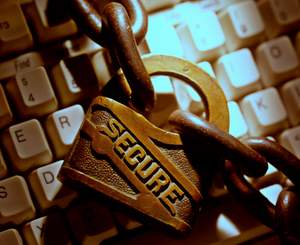 An independent survey conducted by BKAV (Bach Khoa antivirus) in January 2011 shows that computer virus infections in 2010 were not considerably improved, and computer viruses still caused a big loss of 5900 billion dong to users.
An independent survey conducted by BKAV (Bach Khoa antivirus) in January 2011 shows that computer virus infections in 2010 were not considerably improved, and computer viruses still caused a big loss of 5900 billion dong to users.
An independent survey conducted by BKAV (Bach Khoa antivirus) in January 2011 shows that computer virus infections in 2010 were not considerably improved, and computer viruses still caused a big loss of 5900 billion dong to users.
The losses have been calculated based on the income of computer users and the duration when their work was interrupted due to the viruses. On average, every computer user in
The percentage of virus infected computers decreased slightly in 2010
In 2010, 93 percent of computers in
USBs remain the most popular source of viruses. 96 percent of polled computer users said their USBs were infected with viruses at least one time last year.
2010 was the year when awareness of computer security issues was improved. 93 percent of polled people said that in order to effectively fight against viruses, they need to use copyrighted antivirus software. If they use illegal software, they will be vulnerable when troubles occur, because they cannot ask software producers to offer consultancy or give technical assistance.
In 2010 when meeting troubles with computer viruses people’s actions were also quite different from that in 2008. 49 percent of computer users said they would ask antivirus software producers to give assistance when meeting troubles, while the figure was 34 percent only in 2008. As such, now people know how to protect themselves from viruses and know to use supporting services.
A good thing that BKAV’s report has pointed out is that computer users are now vigilant about links sent via emails or messenger clients. Only 10 percent of people would click on a strange link.
good thing that BKAV’s report has pointed out is that computer users are now vigilant about links sent via emails or messenger clients. Only 10 percent of people would click on a strange link.
According to Nguyen Minh Duc, Network Security Division of BKAV, said that 67 percent of polled people said they would track down the origins of the links sent to them, and they would ignore the links sent to them by strangers. “This is the advisable treatment in these cases,” he said.
Computer users have good awareness, but don’t take actions
While passwords can open the “world” of a person, including a personal computer or email, 53 percent of people still do not undertake necessary measures to protect passwords.
“Computer users need to create strong passwords in order to avoid the risks of having passwords stolen. Strong passwords are the passwords which have at least nine characters with numbers, lower-case letters, block letters and symbols such as @#$%^&*. One must not provide passwords to anyone and should change passwords regularly,” Duc said.
A simple solution which people can use to protect their computers is to lock the computers when they do not use them. However, 63 percent of computer users said they never lock their computers before leaving desks, even though the action is simply done by pressing “Windows + L”.

 Previous page
Previous page Back to top
Back to top







